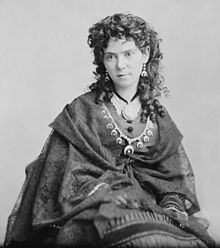
George Armstrong Custer
I'm reading a great book entitled The Last Stand by Nathaniel Philbrick. I've read several books on the Battle of Little Bighorn, but this is by far the most interesting. I have just gotten to the beginning of the battle and I can hardly put this book down. I've been trying to save it for deer hunting, but sitting at home, I can't resist. It's that good.
Now to what interested me about the book. I am a Civil War historian, but more than that, I study Confederate generals. I've never really studied Custer's personality other than what I've read about his ego, etc. Turns out, he wasn't quite what I was expecting. Yes, he was rash, aggressive, and believed he could whip all the Native Americans in the world with the Seventh Cavalry. He was also excitable and his mouth tended to outrun his brain, if he engaged his brain at all. Called back east just before the battle, he testified against Grant's administration about supposed corruption in the War Department. Custer testified to rumors he'd heard and few facts and never slowed down long enough to think it may have an impact on his career. Grant was furious with him.
Even more surprising to me was some of Custer's personal habits. In those days, there were no words for mental illnesses. His wife Libbie wrote about some of his idiosyncrasies. Was it possible that General Custer had OCD? Obsessive-cumpulsive disorder is a mental disorder where people tend to check things repeatedly, perform certain routines repeatedly, or become obsessed with thoughts repeatedly. Libbie noted that Custer had several quirks. He repeatedly washed his hands and brushed his teeth after every meal. He carried his toothbrush with him into battle. If anyone mentioned something unpleasant at the table, Custer would lose his appetite.
Custer also tended to lose his temper and say things he normally would not. He once became upset with his black interpreter Isaiah Dorman. The black man was on his knees before Custer begging for mercy. The next day, Custer forced Dorman to walk all day as punishment.
To Custer's credit, he did not drink alcohol. Philbrick noted in his book that "his emotional effusions unhinged his judgment in ways that went far beyond alcohol's ability to interfere with clear thinking." Custer also had taken a vow to abstain from profanity, yet on the day of the big battle, his subordinates caused him to curse at least twice.

Vinnie Ream
What was Custer's big weakness? It seems it was women. There had been rumors about Custer and Vinnie Ream, a sculptress who had carried on affairs with General Sherman, Franz Liszt, and several others. According to Captain Benteen, Custer frequently had sex with his black cook Eliza. Benteen claimed it didn't stop there. He said Custer had an affair with a Cheyenne captive named Monahsetah and another officer's wife. Cheyenne legend states that Custer had an illegitimate son with Monahsetah. Benteen also said Custer used many prostitutes.
According to Philbrick, Libbie Custer was no angel herself. When Custer was arrested for riding across the plains 150 miles to be with Libbie, having abandoned his regiment. Benteen claimed the ride resulted from an anonymous letter to Custer saying that an alcoholic lieutenant was paying too much attention to his wife. Libbie was also known to correspond with two of Custer's more handsome officers, William Cooke and Myles Keogh.

Lawrence Barrett
Another thing I found amusing was Custer's best friend. According to Libbie, Custer's best friend was stage actor Lawrence Barrett. It seems Libbie was somewhat jealous of their relationship. They had met in the 1860's in St. Louis. Libbie wrote that the two of them enjoyed each other the way women do. She stated that she would not look at them as they parted ways because of the tears in their eyes and the way they looked at each other. While in New York City, Custer had watched Barrett perform in the play Julius Caeser at least forty times. If you think their relationship went beyond friendship, it is interesting to note that Barrett was also married. It seems they must have just been extremely close friends, attracted to one another in some way. Interestingly, Barrett's daughter would become an actress and married Vincent Price.
The book is a great read and I highly recommend it. I have just reached halfway through and as any reader can tell you, I can't wait to finish it, at the same time, I dread finishing it.
I am constantly amazed at how many times the same misinformation is discovered and repeated by "new comers" to this story. Projecting contemporary diagnosis on historical figures is an amusing if not futile passtime.
ReplyDeleteTom Roper is one of those guys my Dad describes as Know it All's, my dad says you must ignore these poor idiots, its their only claim to fame in life.
DeleteBased on the skeptical comments by Mr. Roper, I would be interested in other reading materials, as well. Either way, General Custer was quite a character and this book sounds like interesting reading. We think we already know quite a lot about his military career so the other side sounds intriguing.
ReplyDeleteCusters was not a confederate general. He was in the 7th Calvary of the union army
ReplyDeleteActually no. He commanded the Michigan 3rd and 2nd cavs in the CW.
DeleteHe didn't get to be 2nd in command of the 7th until 1866 when it was formed ( at fort Riley, I think)